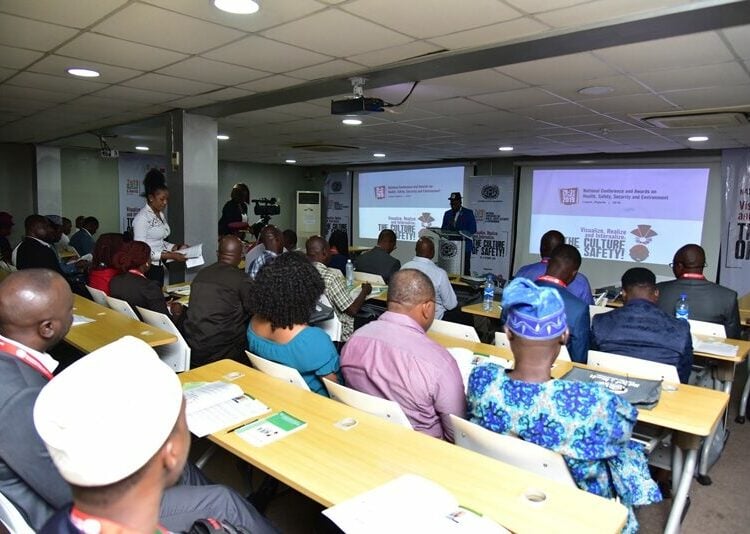The World Safety Organisation through the private sector players, academia and professional bodies have said to improve safety practices in Nigeria there’s need to strengthen leadership commitment, implement stronger laws, deepen grassroots education and collaboration among governments.
Country director of WSO Nigeria and executive director of SafERR Networks, Dr. Soji Olalokun made this known at a media parley, stressing that, Nigeria is still faced with major challenges in safety practices, especially lack of awareness and a reactive culture toward safety.
He noted that, safety is still treated as a box-ticking exercise rather than a way of life.
Many accidents we see are avoidable if there is awareness, training and strong enforcement of safety rules, Olalokun said.
He also revealed that, WSO would host the eighth edition of its International Conference and World Safety Awards (WoSAwards) on Sept. 11 and Sept. 12 in Ikeja in an effort to promote safety practices.
Olalokun said, the conference would have the theme: ‘PROGRESS: Promoting Resilient Occupational, Governance, Risk Management, and Environmental Safety Standards.’ He said, more than 2,000 safety, security, health and environment professionals, policymakers, regulators, academics and industry leaders across the world were being expected to participate in the event.
He said, the conference would feature keynote addresses, panel discussions, technical paper presentations and investiture of SafERR Global Ambassadors, as well as induction of new members into the SafERR Global Institute.
According to him, a major highlight will be the WoSAwards Gala Night, where more than 32 corporate organisations and 31 individuals would be honoured for their contributions to advancing safety, security, health, environment and sustainability. He said, participants would benefit from free training on emergency response.
Olalokun described the conference as a platform to educate, recognise and empower.
“It is not just another conference. It is a movement for change. We want to create heroes out of safety champions, equip Nigerians with life-saving skills, and promote a new culture where safety becomes natural for everyone,” he said.
He noted that, the impact would be both immediate and long-term, as participants would gain hands-on knowledge to save lives, while industries and communities would benefit from improved safety practices.
“A safer Nigeria is a more productive and economically-viable Nigeria. Reduced accidents mean less downtime, lower healthcare costs and a more attractive environment for investors,” he said.





